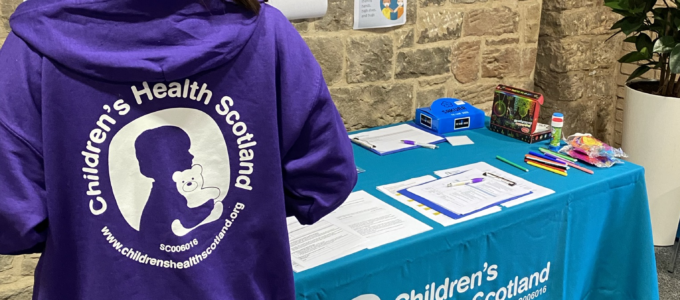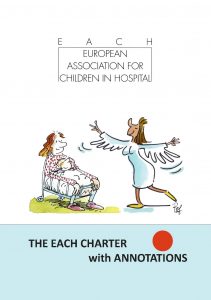
We can provide direct information and support to families on the health and wellbeing of children and young people.
Below is a range of information and support that you may find helpful and here are the ways that you can contact us if you need our help.
-
Give Beth a call on 0131 553 6553
-
Email enquiries@childrenshealthscotland.org
-
CLICK HERE to submit an online enquiry form
Information and Support
It is normal for us to feel worried or anxious from time to time, such as when we’re starting school or nursery, or moving to a new area. Anxiety is a feeling of unease, such as worry or fear – it’s an understandable reaction to change or a stressful event.
 Read: The Huge Bag of Worries. Virginia Ironside (Hodder, 2004)
Read: The Huge Bag of Worries. Virginia Ironside (Hodder, 2004)
Bullying is behaviour that hurts someone else – such as name calling, hitting, pushing, spreading rumours, threatening or making someone feel small. It can happen anywhere – at school, at home or online. It can often happen for a long time and it can hurt both physically and emotionally.
Bullying that happens online, using social networks, games and mobile phones, is often called cyberbullying. It can feel like there’s no escape because it can happen wherever we are, at any time of day or night.
https://www.nspcc.org.uk/preventing-abuse/child-abuse-and-neglect/bullying-and-cyberbullying/
All children and young people have human and healthcare rights which sets out what we are entitled to. For example, we have the right to the best health possible and to medical care and the right to play!
Before the age of seven 50% of all children in the UK will have a hospital admission. Most will be treated, recover and go home. But for some, the illness may be more complicated and become a long term condition. This may result in a lot of visits to or stays in hospital as they grow up. We work for children and young people to get the best standard of health care when they are ill. We can help children, young people and families at such times and tell them what to expect from the health service.
Pain is usually the body’s useful warning signal that something is wrong. All children feel pain, just as adults do. Sometimes the reason for the pain is clear, like a broken bone but sometimes it can be hard to explain it or there seems to be more pain than we would expect. You can get help to deal with pain.
Read: Helping Children Cope with Pain
Read: Helping Children Cope with Needles
Resilience is about ‘bouncing back’ from what life throws at us. It is about being strong inside and able to adapt well to changes and difficulties. It is about doing well in life, despite our circumstances.
When you’re online it’s important to stay safe and make sure you don’t share things that can put you in danger. ChildLine provides advice to help you stay safe online. https://www.childline.org.uk/info-advice/bullying-abuse-safety/online-mobile-safety/staying-safe-online/
Sometimes we can have a hard time at school and find it difficult to learn and take part. You’re not alone though and with the right support things can get better.
Transgender describes people who feel that the gender they were given at birth does not match how they feel inside. For example, someone who was born as a girl but has always felt like a boy.
https://www.childline.org.uk/info-advice/your-feelings/sexual-identity/transgender-identity/
Rainbow Families Visit website via www.lgbthealth.org.uk
Self-harm can happen during times of anger, distress, fear, worry, depression or low self-esteem in order to control negative feelings. It can be anything that causes harm – even a little harm – which in some small way makes you feel better emotionally. The important thing is to recognise when help is needed and find some support as soon as possible.
Some children or young people may feel like there is no hope or might think about ending their life. Mental illness and thinking about suicide are fairly common issues for young people, but thankfully very few will try to take their own lives. However suicidal thoughts clearly shows someone is unhappy and needs help and support and the right care to get better.
It can be difficult to understand what causes suicidal feelings but they’re often triggered by upsetting experiences.
IF YOU THINK A CHILD IS IN IMMEDIATE DANGER, CALL 999 STRAIGHT AWAY
If you are sad or worried and need to speak to someone now Childline can help. You can talk to them about anything. No problem is too big or too small.
Call them free on 0800 1111 or get in touch online. However you choose to contact them, you’re in control. It’s confidential and you don’t have to give your name if you don’t want to.
If you are living in Scotland as a refugee or seeking asylum and want to know about your rights, Childline can help you. A refugee is someone who has been given the right to stay in the UK because they’re unsafe in their home country.
Activities, Resources and Toolbox
- The ABCD of CBT
- Breathing exercises
- My Calming Poster
- Understanding Changes (Change Curve)
- Looked After Children Poster
- NHS Jargon buster
- Online Safety Poster
- Stress Reduction Activities
Get Involved
Social Activities
We have fun games, activities, volunteering and pizza nights as part of the Children and Young People Self Management Programme. To get a list of upcoming events or take part, please contact us.
Enquiries
Get in touch if you need further information or to enquire about volunteering opportunities in your area.
